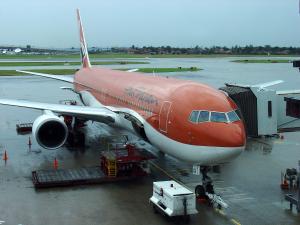Air Travel: Your Booking Options

Are you looking to take a trip or a vacation that will require you to fly? If you are, you will need to make your airline reservations soon. When doing so, you will find that you have a number of different options. A few of your options, as well as the pros and cons to each, are highlighted below.
One of the easiest ways to book travel arrangements, including airline reservations is to use the internet. When using the internet, many turn to online travel websites. In fact, online travel websites have increased in popularity over the years. When using an online travel website to book your airline reservations, you need to enter in the number of travelers, your intended dates of travel, where you will be leaving from, and your destination. You will then be provided with a list of flights that meet your needs. All of these flights, which often include different airlines, should be compared.
As previously stated, online travel websites are easy to use. That is just one of the reasons why they are so popular. Even inexperienced internet users can buy airline tickets from a travel website with ease. As for the downside to using an online travel website, many charge you a small fee for using their services; however, this fee, if it is charged, is often added right into the quoted airfare rate. Read more
Know Before You Go On Your Trip Overseas

There is much that you can do to prepare for your trip abroad, depending on where you are going, how long you are staying, and your reasons for traveling.
The following suggestions and sources may be useful:
Do your homework and read as much as possible about the countries in which you plan to travel. Informing yourself about a nation’s history, culture, customs and politics will make your stay more meaningful. Such information can be found in most libraries, bookstores and tourist bureaus. Although English is spoken in many countries, it is a good idea to learn what you can of the language of the country in which you will be traveling.
Travel agents can provide brochures and tourist information about the countries that you wish to visit.
Most international airlines can supply you with travel brochures about the countries that they serve. Many countries have tourist information offices in main cities in the United States where you can obtain travel brochures and maps.
Foreign embassies or consulates in the United States can provide up-to-date information on their countries. Addresses and telephone numbers of the embassies of foreign governments are listed in the Congressional Directory, available at most public libraries. In addition to their embassies, some countries also have consulates in major U.S. cities. Look for their addresses in your local telephone directory, or find them in the publication, Foreign Consular Offices in the United States, available in many public libraries, or on the state department travel web site. Read more
Airline Restrictions on Baggage

Items and materials that may be commonplace and necessary at home or in the workplace are sometimes banned inside aircrafts because of the dangers they pose to both passengers and crew. It therefore becomes important to check with the airline which items they allow as carry-on luggage or as checked baggage, or banned altogether.
The following are the categories of items proscribed by the Transport Security Administration from being boarded in aircraft cabins:
Explosives and firearms. Matches, sparklers, other fireworks, flares, gunpowder, ammunition or other ordnance, blasting caps, dynamite, loaded firearms.
Other weapons. Knives of any kind, throwing stars, swords, or other items used in martial arts competitions. Rules in other countries will differ on transporting knives and other weapons.
Gases and pressure containers. Flammable aerosols like hair spray, spray paint or insect repellant; carbon dioxide cartridges, oxygen tanks (scuba or medical), mace, tear gas, pepper spray, self-inflating rafts, and deeply refrigerated gases such as liquid nitrogen. Read more
